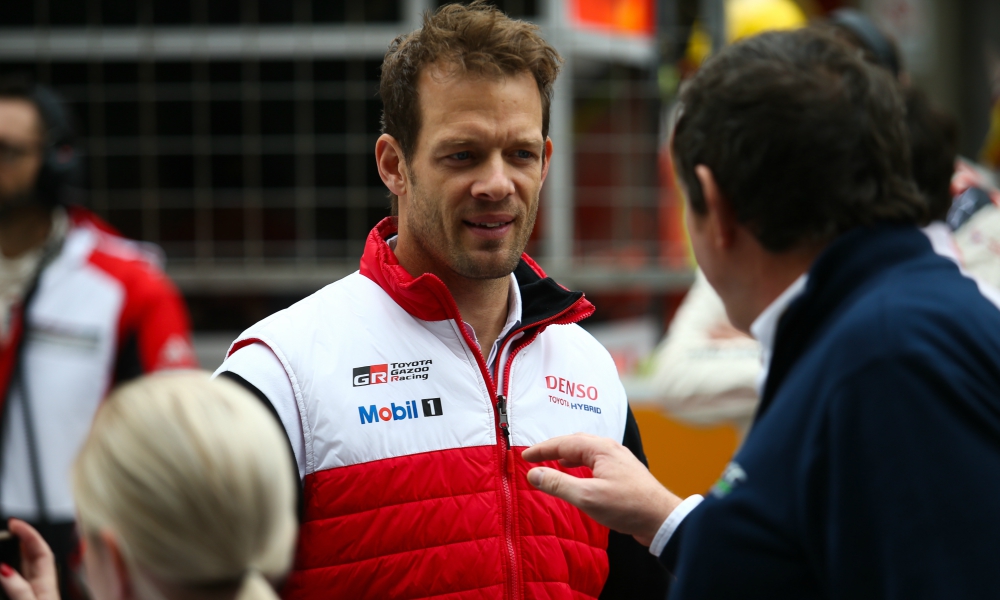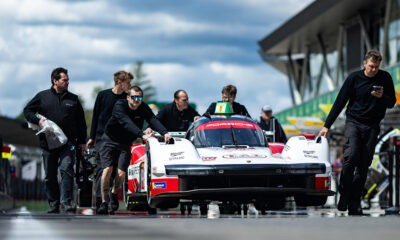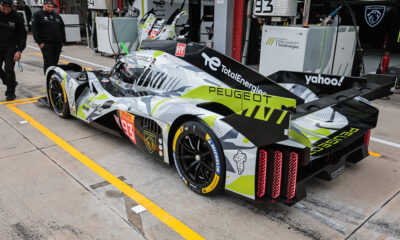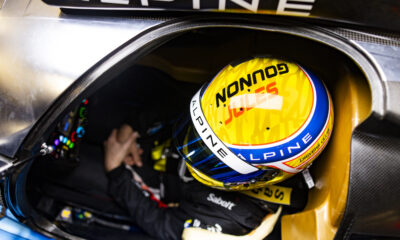
Photo: Olivier Beroud
Alex Wurz says he faced a considerable mental challenge when he returned to the Toyota TS050 Hybrid after almost two years out of the cockpit.
The former factory driver, who took up an advisory role after retiring from competition in 2016, is back behind the wheel for this weekend’s FIA World Endurance Championship Prologue pre-season test at Paul Ricard.
It comes as the Japanese manufacturer faces a shortage of full-season drivers for the two-day test, with Kazuki Nakajima and Kamui Kobayashi on Super GT duty and Fernando Alonso in Bahrain for Formula 1.
Wurz had a refresher of the Toyota during the manufacturer’s visit to Aragon two weeks ago, but besides completing two stints at the Spanish circuit had not driven the car in anger since the 2016 Le Mans test day.
With no additional simulator experience and only a handful of rallycross test opportunities to boot, the 44-year-old said the technological complexity of the car was difficult to get re-acquainted with.
“I did one short stint and one long run, just to check to see if I can still do it,” Wurz told Sportscar365.
“I was a bit nervous because I didn’t know how it would go with the high grip and high downforce.
“There was no problem with the driving itself – the feeling of the car, the feedback and overall speed. But what happened was a massive mental overload because of the multi-tasking involved – my god it played havoc with my mind.”
“I came in after eight laps, out of breath, not because I’m unfit but because in our cars you have to do so many different things – every two or three corners we are changing the system settings.”
Wurz expects to complete four double stints at the Prologue, which is the maximum for an LMP1 driver during a standard endurance test.
That will likely include a spell of night running at the 3.6-mile circuit in the south of France.
Having experienced the car again, Wurz feels he’s in a better position to turn laps at a consistent rate for Toyota’s team of engineers.
He also believes the taxing mental strain of driving the high-powered hybrid is evidence of a drastic evolution of endurance machinery.
“During the second run at Aragon it was much better because I calmed down and took my time, but this shows just how challenging our tech-monsters are,” he said.
“If you’re not in the game full-time, you will easily lose one to two seconds, because of the complexity of the system.
“No other racing car exists which is as technologically sophisticated at this, with the various energy recovery systems and the four-wheel-drive. I would say it’s more complex than when I was in Formula 1.
“You need to make all these in-car adjustments at the same time as racing for position and feeling the car. It’s a very mind-heavy sport now.”






















